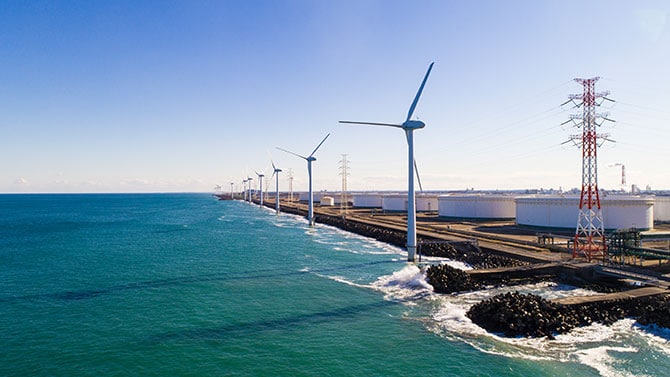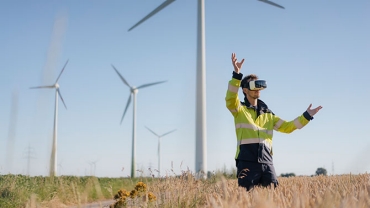
The European Union is striving for an economy that is smart and innovative and at the same time emissions free and circular by 2050, for the benefit of all Europeans. The financial sector is seen as a catalyst for this transition. The sector has expressed its ambition to realise the European Commission’s Action Plan for Sustainable Finance in order to facilitate the transition. On 8 September, PwC organised a digital meeting in which a number of board members of European banks, insurers and asset managers discussed their ambitions and challenges with Executive Vice-President Frans Timmermans of the European Commission. He explicitly invited the financial sector to continue this dialogue.


Financial sector is driving force of the sustainable transition
The financial sector will be crucial to enable the sustainable transition, in which both climate and social goals will play an important role. The European Union and the Member States will invest billions of euros in the coming years. However, most of the money will need to be raised by the private sector. The Commission estimates that 260 billion euros annually will be needed for additional investments to meet the climate targets set for 2030 alone. It is the financial sector that will be the driving force behind the mobilisation of these sustainable investments and thus for the transition that businesses, organisations and citizens need to make. Timmermans: “The amount of investment required is unbelievable, almost daunting. But it is feasible. It is not beyond reality. The case of investments in renewable energy shows that reasonable returns are possible.”
No money in stranded assets, but in growth
Within the European Union there is great awareness that investments in so-called stranded assets should be avoided (where possible). Timmermans: “Are we throwing money into the economy just to survive? No, we are not. The sustainable transition and its financing is a strategy aimed at growth." He acknowledges that the political discussion and mood in the Member States is not always in line with this ambition and that for politicians there is sometimes a temptation to invest for the short term in things that are not viable in the long term. “The political mood is volatile. Your financial sector has become more focused on the long term, my political sector more short-term.”


Feedback from the financial sector for Timmermans
Timmermans says he would like to collaborate with the financial sector to develop effective regulation. “The European Union can coordinate recovery plans, make sure we all move in the same direction. We can ensure predictability by not suddenly changing course over the coming years. I would like to form a partnership with the financial sector in order to develop a regulatory framework. We need your feedback to make legislation better and to avoid making mistakes that we have to fix later on.”
Timmermans also acknowledges the huge task ahead of the financial sector. “What we as European Union can do pales in comparison to what the financial sector can set in motion to achieve the green transition.”
The participants in the round table confirmed their drive and motivation to help the transition, but they also had a number of messages for the Commissioner in order to make this possible.
Recommendations to the euro commissioner
- Predictability is key
- Prevent (further) complex regulations
- Collect data and develop reporting standards
- Pay attention to parties who cannot keep up
Predictability is key
Several participants in the meeting emphasised that predictability in European policy is crucial because investments in sustainability are, by definition, long-term investments. For them, predictability does not mean a static situation, which would stop new players from entering the market. On the contrary, market forces and competition are necessary in order to ultimately find the best solutions. Predictability does, however, mean that the European Union would consistently follow the course it has now set.
Timmermans endorses that, and points out that part of that predictability is laid down in the European Climate Act, which obliges EU institutions and Member States to reduce greenhouse gas emissions to zero. With this law a clear direction has been set and prevents a situation where the climate objectives are being part of a political discussion every time. Timmermans: “It helps us if you can define what you need in terms of predictability, so that we can make this concrete.”
The European response to the coronacrisis has given Timmermans confidence that the Green Deal has set an irreversible path for the European Union. “Within the Union the support for sustainability policy has remained stable. I was afraid that the ambitions would be put on hold because all focus would go to health measures and the preservation of jobs. But that did not happen.”
Prevent (further) complex regulations
A few participants in the discussion with the Executive Vice-President of the Commission point out that some already complex regulations are in danger of becoming even more complex, for example due to the incorporation of ESG risks in Solvency II, the guidelines for maintaining capital buffers for insurers. Sometimes guidelines are contradictory. Some participants fear that developing the EU taxonomy, the EU’s classification system for sustainable investments and other forms of financing, will create more complexity and more bureaucracy for the financial sector.
Timmermans promises that the Commission will strive to ensure more consistency in all its actions. And he immediately adds that the Commission is also paying close attention to reducing the administrative burden on the financial sector.
Collect data and develop reporting standards
The transition to a sustainable economy requires organisations to report on more than their financial performance. After all, climate and social risks ultimately translate into financial risks. A large proportion of the participants at the digital round table say that they are eagerly awaiting reporting standards for this and feel that the current standard setters are not acting at the right speed on this subject. “So take the lead here as the European Commission”, says one participant.
The participants also emphasise the importance of the availability and accessibility of good quality data. Such data is a prerequisite for the adequate management of sustainability portfolios and for good comparable reports on the performance of that portfolio. One of the attendees advocate a one-stop shop for ESG data, an institution that collects data and which data users can call upon to obtain this data. Such an organisation could be accommodated at the European statistical office Eurostat.
Pay attention to parties who cannot keep up
On several occasions, the attendees draw attention to the fact that some parties will face difficulties with this transition and run the risk of being left behind. An example of these are small and medium-sized enterprises (SMEs) that are less well equipped for the transition than large companies. SMEs need financing, but just as importantly they need advice. Countries that depend more than average on coal as an energy source need to make an above-average effort to make the sustainable transition happen.
Timmermans: “We have discussed the need for a long-term perspective on several occasions. SMEs generally don't have that luxury. We therefore need to integrate the needs of the financial sector and large companies with the interests of small and medium-sized enterprises." He is optimistic about the opportunities that the transition can offer SMEs. “Look, for example, at the sustainable adaptation of buildings. That will create work and employment opportunities.”
European Member States that need to make a transition from fossil fuels to sustainable energy sources face an enormous task and need transitional solutions. What should those solutions look like? According to Timmermans, it would be most obvious to invest in infrastructure for natural gas, because that infrastructure can be used for the transport and storage of hydrogen in the long term. He does not consider investments in nuclear energy to be an obvious solution because of its enormous size. “Make rational choices", he says.
The Commissioner has already spoken several times about the importance of an inclusive transition. “If people or countries are left behind this will not succeed”, he says a few times. “My hometown of Heerlen is still suffering from the closure of the mines fifty years ago because the choice for sustainable alternatives and financing was not made at that time.”
Contact us





















